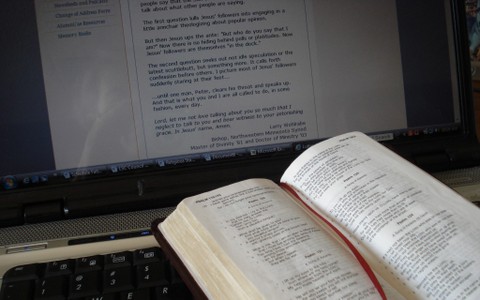Hebrews 13:20-21 ESV
Now may the God of peace who brought again from the dead our Lord Jesus, the great shepherd of the sheep, by the blood of the eternal covenant, [21] equip you with everything good that you may do his will, working in us that which is pleasing in his sight, through Jesus Christ, to whom be glory forever and ever. Amen.
Hebrews 9:15-18 NASB
For this reason He is the mediator of a new covenant, so that, since a death has taken place for the redemption of the transgressions that were committed under the first covenant, those who have been called may receive the promise of the eternal inheritance. [16] For where a covenant is, there must of necessity be the death of the one who made it. [17] For a covenant is valid only when men are dead, for it is never in force while the one who made it lives. [18] Therefore, even the first covenant was not inaugurated without blood.
There are two kinds of covenants; bilateral and unilateral. A bilateral covenant is when both parties make promises to each other. If the promises that each makes are performed by each then at either one’s death, the survivors’ heirs become coheirs of all that belonged to the one who died, and when the second party in the covenant dies then all that belongs to him is shared by the surviving heirs of the other covenant party.
A unilateral covenant is very simple; it involves one who is greater, promising an inheritance to one who is lesser, which is a covenant of grace. All that is required of the one who is lesser to become an heir of all that the one who is greater has is for the one who is greater to die. In this kind of covenant, the one who is greater, who initiates the covenant, is basically saying, “I am going to take care of my part, and I am going to make it simple because I’m going to take care of your part too.” A unilateral covenant does not require any kind of performance from the one who is lesser. This will give you some insight into the extraordinary nature and personality of God. For us to be able to partake of the eternal inheritance that God offers, God had to die. Colossians 1:20 tells us that God reconciled all things to Himself, having made peace through the blood of the Cross of Christ. There is nothing about man’s separation from God because of sin that God celebrated. God is a God of peace and even though mankind was at enmity with God, the God of peace had already made an eternal covenant to do whatever it took to reconcile mankind to Himself that we might experience the inheritance. By the way, the inheritance is the indwelling risen Christ and all that He has, and all that He is. The idea of our being separated from God was so intolerable to Him that He entered into a covenant that would require His own death that we might be restored to the fellowship of union with Him that we were created for. God SO love the world!

